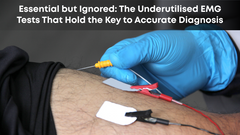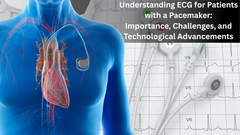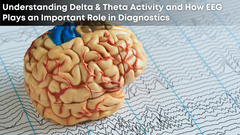Understanding Myocarditis: Symptoms, Diagnosis, Treatment and Prevention
Myocarditis is a medical condition that causes the inflammation of the myocardium which is the muscle layer of your heart’s wall. This disease reduces the heart’s ability to pump out blood as it directly affects the heart muscle and electrical systems in our body. This eventually leads to several potential complications like arrhythmia, cardiomyopathy, an abnormal or rapid heartbeat.
What Causes Myocarditis?
Viral infections can be a known cause for myocarditis as inflammation occurs as a body’s response to fighting infections. However, it can also be caused by more systemic inflammatory disorders like autoimmune diseases. The heart muscle weakens to an extent in some severe cases that it cannot even pump blood properly to the rest of the body.
In some cases of Myocarditis, the causes may never be known. While in other cases, the cause of the disease can be identified. These include:
>Bacteria causing staph infections, strep throat Lyme disease or diphtheria.>Viruses that cause colds, rubella, mononucleosis, gastroenteritis, AIDS or HIV.
>Fungal infections caused by yeast, mold or passed through animal excrement.
>Parasites causing the Chagas disease such as Trypanosoma cruzi and toxoplasma.
>Drugs that include diuretics, antibiotics, cocaine and drugs used for the treatment of epilepsy.
>Autoimmune diseases like rheumatoid arthritis, lupus, celiac disease or Crohn’s disease.
>Exposure to toxic substances like radiation, carbon monoxide or arsenic.
To categorize better, there are 3 main forms of myocarditis:
1. Acute Myocarditis - this is a relatively fast onset of the disease which is mostly caused by a viral infection and can develop or resolve rapidly.2. Chronic Myocarditis - this occurs because of general conditions causing inflammation like an autoimmune disease where the immune system attacks healthy tissues and cells in the human body.
3. Lymphocytic Myocarditis - a very rare form of the disease, it can often lead to hospitalization. In this type of myocarditis, the WBCs or lymphocytes enter the heart muscle and cause inflammation.
If you experience any of the above symptoms it is advised that you seek medical help immediately. A general practitioner will follow up with a full medical history, a physical exam and several other tests like blood test, ECG, Holter monitor, MRI, echocardiogram or even a cardiac catheterization to diagnose myocarditis.
Symptoms and Diagnosis of Myocarditis
It can be very easy to miss any symptoms that come with the onset of the diseases. In several mild cases these symptoms can even go unnoticed or there may be no symptoms at all. However, some common symptoms include:
>Arrhythmias>Fatigue
>Chest pain
>Infection signs include fever, diarrhoea, muscle aches, headaches, swelling, sore throat or shortness of breath
Treatment & Prevention of Myocarditis
There are a few cases where this condition resolves in itself. However, if that isn’t the case a list of treatments includes:
>Antiviral drugs to combat viral infection>Antibiotics to treat any bacterial infection
>Steroids for reducing inflammation
>IVIG or intravenous immunoglobulin to boost the immune system via a blood product
In case the patient's heart muscle has already weakened then one of the below given therapies may be prescribed as well:
>ACE inhibitors (Angiotensin-converting enzyme) lower blood pressure and thus makes it possible for the blood to flow easily throughout the body.>Angiotensin II receptor blockers for patients who cannot withstand the ACE inhibitor treatment.
>Diuretics help clear the system of excess water and sodium.
>Beta-blockers to slow down the heart rate and decrease the blood pressure in order for the heart to do less work.
Severe cases of myocarditis however need to be treated with a medical procedure. This may include:
1. Intra-aortic balloon pump - a catheter is inserted in a blood vessel in the leg. It is guided to the heart via an X-ray. A balloon attached to the end of the cath is then inflated and deflated to increase the flow of the blood and to reduce the heart’s workload.2. VADs - ventricular assist devices can be implanted in either the abdomen or chest and are attached to the weak heart. This device then helps pump blood from the lower chambers of the heart to the entire body.
3. ECMO - extracorporeal membrane oxygenation devices provide oxygen to the body in case of heart failure. The blood passes through the ECMO machine where carbon dioxide is removed and oxygen is added to the blood before it is sent back to the body.
Although there isn’t a sure shot way to prevent Myocarditis you can prevent the disease by staying cautious and following a few lifestyle changes:
>Stay away from sick people who likely have viral or other infectious diseases.>Wash your hands frequently and keep a sanitizer handy.
>Practice good hygiene in general.
>Always stay up-to-date with your vaccinations.
>Avoid spending time in tick-infested areas. In case you have to go out in such a situation then wear appropriate clothing and use insect repellents with DEET in it.
In contrast, for past 20 years Clarity Medical has been developing various devices to diagnose heart problems through various different models of ECG machines that can be easily operated and available in multiple channel options (3/6/12).












